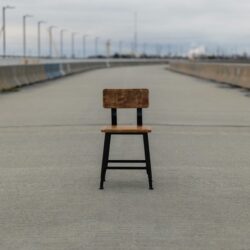Europe slides in Times Higher Education rankings
This post was originally published on The Conversation’s website in October 2013. It is kindly reposted here with their permission.
Author – Laura Hood, The Conversation
 Some of the top institutions in Europe have dropped down the annual Times Higher Education World University Rankings for 2013. The UK and US continue to dominate while leaders in France, Germany, Netherlands, Russia, Belgium, Ireland and Austria have seen their stars fade.
Some of the top institutions in Europe have dropped down the annual Times Higher Education World University Rankings for 2013. The UK and US continue to dominate while leaders in France, Germany, Netherlands, Russia, Belgium, Ireland and Austria have seen their stars fade.
The results are likely to spur on advocates of a scheme to produce a measurement of university excellence that better reflects the strengths of universities outside the US and UK.
Taking the top spot in the THE rankings for the third year in a row is the California Institute of Technology. Oxford has also maintained its position in joint second place but in a tussle between the East and West coasts of the US, Harvard has pushed Stanford into fourth place, having regained its position next to Oxford at number two.
Tussles at the top
Several high-profile UK institutions have strengthened their positions, with King’s College the most notable success story, rising from 57th place last year to 38th place this time round – one of the biggest climbers in the league table overall.
Meanwhile, main rivals Imperial College London and University College London both slid a few places. Another London giant, the London School of Economics and Political Science climbed from 39th to 32nd place. Cambridge, meanwhile, has stayed at the number 7 spot.
But some other big UK institutions have lost ground since last year. Edinburgh finds itself down from 32nd place to 39th place, and Manchester falls from 49th to 58th.
Overall, the US continues to dominate the rankings, with 77 institutions in the top 200 and seven in the top 10. The UK comes second with 31 institutions overall.
Discontent on the continent
It’s a different story in Europe. ETH Zurich in Switzerland remains the highest rated university outside the UK and US but has fallen two places from 12th to 14th.
France has only three institutions in the top 100 and all three have taken hits. The country’s top rated institution, the Ecole Normale Supérieure in Paris has fallen from 59th place to 65th, while the next best, the Ecole Polytechnique, based just outside the capital, falls from 62nd place to joint 70th.
Pierre and Marie Curie University, another Parisian university, is third in the national ratings but has also taken a serious tumble from 81st place to 96th. In Germany, top institution Munich has fallen from 48th place to 55th although second place Gottingen has climbed from 70th to 63rd place.
What’s the alternative?
The THE rankings are produced by scoring universities across activities. Their research work is the most heavily weighted element and is measured according to factors such as income and citations on papers produced by the institution’s academics. Teaching activity, “international outlook” and work with industry are also factors.
Tia Loukkola, Head of the unit responsible for the quality assurance issues at the European University Association, says there are a number of reasons why European universities consistently fail to be represented at the highest levels of international rankings. This includes the traditional issue of language. Institutions that publish research in English are more likely to attract citations and teaching in English makes it easier for them to attract international students, a huge source of income for universities in the UK, for example.
“Another thing that characterises European higher education in general is that we promote diversity a lot,” says Loukkola. “There is relatively free access, which is good for the social dimension and for society but doesn’t necessarily create elite universities. European countries mostly favour having a strong system, with many universities rather than supporting a select few more than others.”
The THE table differs from other rankings in its use of reputation surveys to produce profiles. However, Loukkola says that this can also count against European institutions. Reputation becomes a virtuous circle so while the most famous institutions continue to benefit, others fail to make their mark. “Reputation surveys are not always linked to pure fact,” she says. “It’s about how well a university is known. It may be that some European universities are just less well known.”
Ben Jongbloed, Senior Research Associate at the Center for Higher Education Policy Studies at the University of Twente in the Netherlands, is working with a team that hopes to produce an alternative to rankings. The project, known as U-Multirank, will publish its first results next year and will aim to provide a broader profile of institutions. Significantly, it will allow users to compare universities according to individual strengths, such as in specific subject areas, rather than relying on an overall score.
“Institutional performance on the various dimensions of a university should not be aggregated into a composite overall measure,” argues Jongbloed. “There is neither theoretical nor empirical justification for assigning specific weights to individual indicators and aggregating them into composite indicators. A justification for the weights used by the Times Higher Education Ranking or the Shanghai Ranking in producing their overall scores has not been provided so far. And studies show that the weighting systems underlying composite indicators are anything but robust.”




























































































